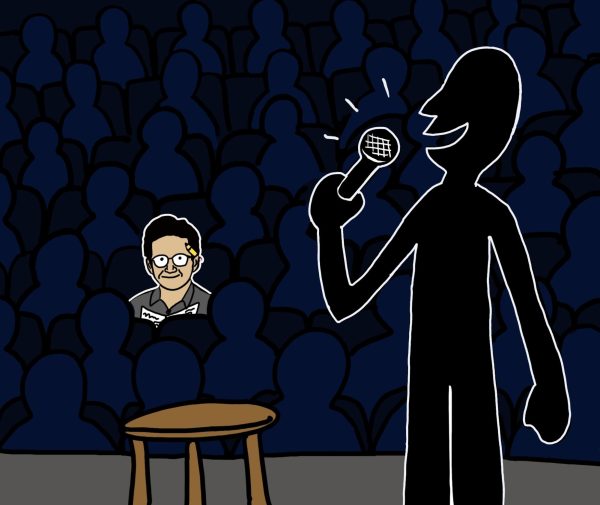Pushing child actors hurts them in the long run
March 17, 2017
Though the role of child actors in plays and film is necessary and sometimes amusing, the toll that rigorous coaching, schooling and rehearsing takes on the lives of these actors makes participation in the arts not worth it.
Before I begin, I should clarify who I am referring to when I say “child actor.” When referencing such actors, I am specifically speaking of those that began performing in somewhat mainstream projects from a very young age, i.e. those that began acting at, say, five years old and continued into their teens. Those that began acting in their teens are less likely to experience the negative effects of entertainment, and, thus, I will not be discussing those cases in depth. Further, while we at ETHS are guilty ourselves of pushing kids too hard and demanding too much from them, the issue is far better represented when looked at on a larger scale, such as Hollywood.
Within the entertainment industry, the exploitation and overuse of children in TV, plays and film causes major issues for both their present and future lives. When young actors are worked just as rigorously and treated just as seriously as their adult counterparts, which they often are in Hollywood, their futures are hurt. They are both removed from necessary components of childhood development, and exposed to aspects of the industry that are not fitting for their young eyes.
As Mara Wilson, who, starred in Matilda, Mrs. Doubtfire and other popular movies of the 90’s as a child explains, as a figure in the entertainment spotlight, child actors are not only expected to behave as professionally as their adult colleagues, but they are also treated equally by the press and the outside world. That is to say, the press is not afraid to interview children about ‘adult’ topics (Wilson described, in a piece for NPR.com, being asked about her coworkers arrest for prostitution when she was under 10 years old), nor is the public afraid to exploit and harass young actors and actresses.
Being treated in such a way is likely, almost certain, to do two things to young children: force them to grow up much faster than any ‘normal’ child is expected to, and cause them to become accustomed to the spotlight and adoration that is sure to fade once they reach a certain age. Once these things happen, celebrities who became famous from a young age tend to go off the rails to some extent, often getting involved heavily in drugs or in conflict with the law, as Lindsay Lohan and Macaulay Culkin show.
Even for those actors that grow up and do not get involved in illicit activities, however, the effects of a life in the Hollywood spotlight are still massive. For example, children that spend a majority of their youth in rehearsal or filming for projects are more likely to have inadequate education, or none at all. The results of this are shown post-fame: an inability to do much other than acting, a skewed sense of what it takes to succeed in life, and a smaller circle of friends than a typical child would have.
Now that the effects of pushing children into rigorous acting careers are seen, it is necessary to ask why so many children in Hollywood follow the cycle of early fame, a subsequent fall from fame and a later life plagued by drugs and lawlessness. There are, of course, exceptions to this cycle, such as Dylan and Cole Sprouse from The Suite Life of Zack and Cody. What is unique about the Sprouse brothers’ experience in acting is that, no matter how full their schedules were with filming, their parents insisted upon giving complete attention to school and grades. The two were generally kept out of the spotlight, aside from their work with Disney Channel. Leonardo Dicaprio is another example of this, as he received a complete high school education even during his filming cycle.
It would appear, then, that the solution to the problem of child actors and poor lives is derived from the maintenance of proper education in their schedules, and a general aversion to the lifestyles of big Hollywood stars. Along with these factors, however, we can do more as a public to ensure that children’s lives are not tarnished by a life in the arts. That is, we as the public must stop putting immense amounts of pressure and judgement on children from such a young age, whether it be on those auditioning for Disney Channel, or those auditioning for a school play. To be scrutinized and judged so fiercely during the pursuit of an activity that they, assumedly, want to succeed in, takes all of the joy out of it, and forces those children to treat their passion as just another job–something no child should be forced to do.
So, our job is simple: allow children to pursue the arts on their own terms, with as little judgement and scrutiny as possible, and ensure that their passion for the arts does not get in the way of their lives as normal children. Not only must we do so for the most famous children in the industry, but also for small time actors within our own community. Few child actors succeed later in life in acting, but all should be allowed to prosper in whatever else they desire.




















